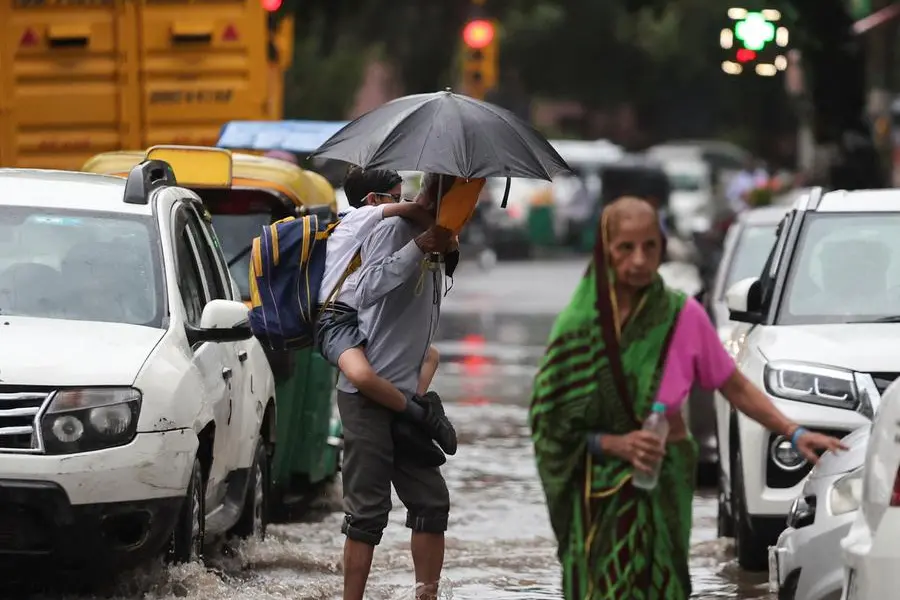PHOTO
India likely faces below-normal rainfall in June due to the monsoon's slow progress, the country's weather department said on Tuesday, raising concerns for its agricultural sector.
Summer rains, critical to economic growth in Asia's third-largest economy, usually begin in the south around June 1 before spreading nationwide by July 8, allowing farmers to plant rice, cotton, soybeans and sugarcane.
The country is most likely to receive below-normal rains, or less than 92% of the long-period average rainfall, the state-run India Meteorological Department (IMD) said in a statement.
The IMD was previously expecting normal rainfall during June.
India has received 20% less rainfall than normal since June 1, according to data compiled by the IMD, with almost all regions except for a few southern states seeing shortfalls and some northwestern states experiencing heat waves.
The monsoon is the lifeblood of the nearly $3.5-trillion economy, bringing nearly 70% of the rain India needs to water farms and refill reservoirs and aquifers.
Nearly half the farmland in the world's second-biggest producer of rice, wheat and sugar does not have access to irrigation and depends on annual rains that usually run until September. (Reporting by Rajendra Jadhav; Editing by Rod Nickel)





















